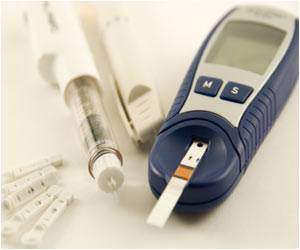 A large meta-analysis of genetic data has discovered previously unknown genes related to Type 1 diabetes. The new information supplements existing knowledge about the genetic networks responsible for the complex range of processes that cause the disease. Type 1 diabetes affects 200 million people around the world; those diagnosed with the disease must use insulin injections to ensure that their blood sugar levels remain under control. The study was published in the journal “Public Library of Science Genetics,” also known as “PLoS Genetics.”
A large meta-analysis of genetic data has discovered previously unknown genes related to Type 1 diabetes. The new information supplements existing knowledge about the genetic networks responsible for the complex range of processes that cause the disease. Type 1 diabetes affects 200 million people around the world; those diagnosed with the disease must use insulin injections to ensure that their blood sugar levels remain under control. The study was published in the journal “Public Library of Science Genetics,” also known as “PLoS Genetics.”
“Genome-wide association studies, as we used here, have been extremely powerful in identifying gene locations involved in the pathogenesis of complex, common diseases,” said Hakon Hakonarson, M.D., Ph.D., head of the study and director of the Center for Applied Genomics at The Children’s Hospital in Philadelphia, Pennsylvania. Dr. Hakonarson noted that the size of the study provided a large pool of data from which the team could draw conclusions. “The larger the cohort used, the more discoveries we can make, and the more we find intriguing biological pathways offering insight into causes of disease.” said Dr. Hakonarson, who collaborated with Constantine Polychronakos, M.D., the director of Pediatric Endocrinology at McGill University.
Called a “genome-wide association study” (GWAS), the study was a meta-analysis that pooled data from six large, existing databases of information about Type 1 diabetes patients. The six studies together comprised information on about 10,000 individuals with Type 1 diabetes in addition to 17,000 control subjects. Information in the databases included single nucleotide polymorphisms (SNPs — pronounced “snips”), single-base alterations in our genetic code that can tip off scientists to the mutations with which they are associated.
The SNPs themselves do not actually cause mutations; they simply appear in regions of the genetic code associated with mutations and allow for more in-depth DNA sequencing studies that can uncover the genes that do actually cause mutations. Hakonarson and his team have conducted studies over the past four years that found SNPs believed to be related to Type 1 diabetes.
Not only did the meta-analysis reinforce previous findings, but it also identified three new SNPs that are located in regions of the genetic code known to have influence on interactions between proteins, cell signaling activity, and inflammation. “Our study found SNPs that we had not expected to have any connection to type 1 diabetes,” says Hakonarson. “The strongest association among the three SNPs was in the region of the LMO7 gene on chromosome 13. We previously associated another member of the LMO gene family with the childhood cancer neuroblastoma. This gene family plays an important role in protein-protein interactions, but it would not have occurred to anyone that it may be active in type 1 diabetes. GWAS continues to turn up surprising biological associations.”
Hakonarson commented that the team would be conducted future studies intended to sequence entire regions of the genetic code which are related to the SNPs. Such a thorough sequencing would provide a better picture of specific mutations which are responsible for the processes that result in Type 1 diabetes.
SNPs have been used for a variety of functions, from predicting an individual person’s response to certain medications to risk of developing certain diseases to breeding livestock. SNPs are single-nucleotide modifications, meaning that they change a single nucleotide; for example, changing a thymine (T) nucleotide to a cytosine (C) nucleotide. Scientists hope that further research will allow SNPs to be used to discover the exact genes responsible for diseases such as diabetes and cancer.